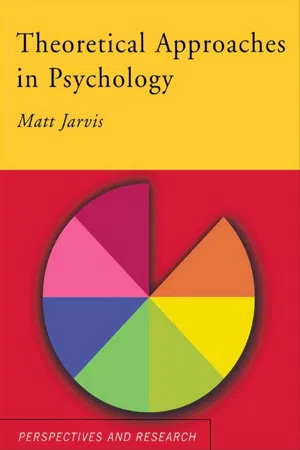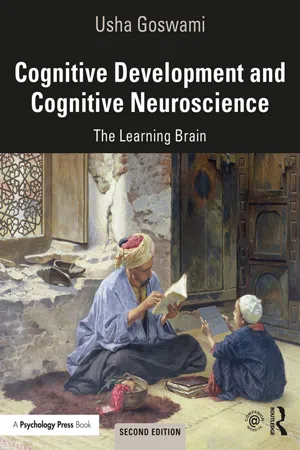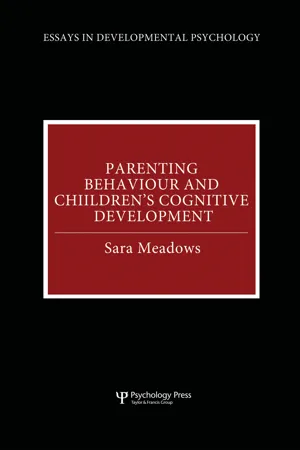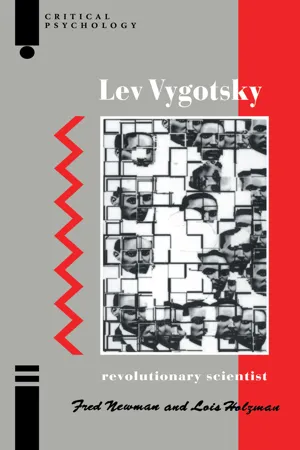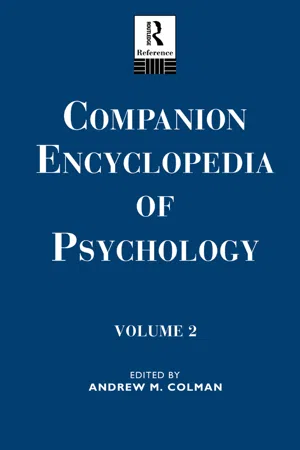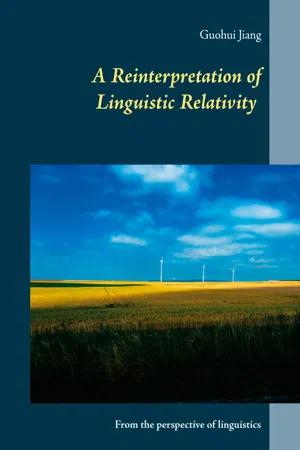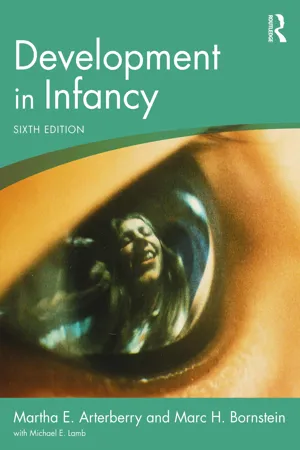Psychology
Piaget vs Vygotsky
Piaget and Vygotsky were influential psychologists who developed theories on cognitive development. Piaget's theory focused on stages of individual development, emphasizing the role of maturation and interaction with the environment. Vygotsky, on the other hand, emphasized the role of social interaction and cultural influences in cognitive development, highlighting the importance of language and social learning.
Written by Perlego with AI-assistance
Related key terms
Related key terms
1 of 4
Related key terms
1 of 3
10 Key excerpts on "Piaget vs Vygotsky"
- Charles Crook(Author)
- 2018(Publication Date)
- Routledge(Publisher)
In contrast, what seems to be best known about Vygotsky and the early socio-cultural theorists is that they promoted a view of development strongly stressing the impact of social events. Moreover, this was not simply a plea for more social psychology – at least, not if that merely implied more attention to ‘social variables’. Vygotsky was not advocating a social psychology in the familiar sense of an interpersonal psychology, one that reduces social experience to the consideration of exchanges between individual social actors. His view has us more thoroughly immersed in the social nature of life. Whereas Piagetian and other psychological theory tends to start from the individual and derive accounts of the social, Vygotsky proceeds the other way round. For Vygotsky the social dimension of conscious mental life is fundamental: ‘individual consciousness is derivative and secondary’ (Vygotsky, 1979, p. 30).At first encounter, Vygotsky’s alternative might seem to have a natural appeal. It prioritises the role of people (parents and teachers, for example) in supporting the child’s psychological development. However, highlighting the role of other people may necessitate querying another appealing perspective: one that puts children themselves at the centre of their own development. This is very much a view we associate with Piaget.The nature of cognitive development in Piaget’s scheme of things is attractively captured in the term ‘constructivism’: children are actively ‘constructing’ their understanding of the world. Surely we will feel an affinity towards such a view. It offers us (personal) responsibility for our psychological nature; it does not leave us passive victims of social forces. In this spirit, Wood articulates a widely felt caution when warning that we should be wary of attributing to ‘the effects of instruction what is properly an achievement of the child’ (1989, p. 59). But as Wood’s own work elegantly demonstrates, any simple dichotomy of instruction and autonomy is misleading. In a cultural view, the term ‘social’ is used to help us see beyond those (important) interpersonal activities that characterise direct tutorial instruction. It identifies the fact that any material environment of learning will manifest a structure reflecting some particular socio-cultural history. Pupils learn interpretative practices that have this social grounding. The appropriation of such practices may not be exclusively within the contexts of face-to-face interaction.- eBook - ePub
- Matt Jarvis(Author)
- 2005(Publication Date)
- Routledge(Publisher)
Vygotsky was a contemporary of Piaget, writing in the Soviet Union during the 1920s and 1930s. His work was not published in the Western world, however, until the 1960s, since which time it has grown hugely in influence. Vygotsky was an admirer of Piaget’s and while he agreed with Piaget that cognitive development takes place in stages characterised by different styles of thinking, he disagreed with Piaget’s view of the child as exploring the world alone and forming its own internal representation of reality.The social and cultural basis of learning
Whereas Piaget saw children as learning by individual discovery, Vygotsky placed more emphasis on the role played by adults and other children in facilitating the child’s development. According to Vygotsky children are born with relatively basic mental functions such as the ability to perceive the outside world and to focus their attention. However, children lack higher mental functions such as memory, thinking and problemsolving. These higher mental functions are seen as ‘tools’ of the culture in which the individual lives and they are cultural in origin. Tools are transmitted to children by older members of the culture during guided learning experiences. Experiences with other people gradually become internalised and form the child’s internal representation of the world. Thus the way each child thinks is shared with other members of its culture.The zone of proximal development
Vygotsky believed that although children would eventually learn some concepts on their own during everyday experience they could develop far more during interaction with others. Children could never develop formal operational thinking without the help of others. Vygotsky called the difference between what a child can learn on its own and what it could potentially learn through interaction with others the zone of proximal development (ZPD). Whereas Piaget believed that the limiting factor in what a child could learn at any time was its stage of development, Vygotsky believed that the crucial factor was the availability of other ‘experts’ who could instruct the child. Unlike Piaget Vygotsky emphasised instruction from others in how to do things in order for the child to achieve its potential. As the child progresses through a zone of proximal development, or learning cycle, the amount of instruction will reduce. At first explicit and detailed instructions are needed, but later on hints and prompts are all that are needed to help the child progress. - eBook - ePub
Cognitive Development and Cognitive Neuroscience
The Learning Brain
- Usha Goswami(Author)
- 2019(Publication Date)
- Routledge(Publisher)
6 ). Although the INRC grouping chosen by Piaget may not have been the appropriate mathematical model for cognition, future advances in cognitive neuroscience seem likely to depend on advances in mathematical theories. Deep learning provides a good example. Modern mathematics has enabled computational models that use multiple processing layers simultaneously to learn from natural data in their raw form (e.g., visual scenes) and models that automatically discover representations at multiple levels of abstraction (LeCun et al., 2015). To date, these models have not been applied to problems in developmental psychology, Further, reverse-engineering the models to discover exactly what is being learned is technically challenging. Nevertheless, deep learning models offer enormous promise for testing developmental theories.Vygotsky’s theory
The notion that developmental changes in reasoning might be better explained by cognitive factors such as familiarity, context, metacognition and language fits well with the theoretical emphasis of Vygotsky’s theory of cognitive development. Vygotsky recognised the importance of language and of cultural context in cognitive development. Although he did not live long enough to generate the wealth of experimental data contributed by Piaget, his ideas about cognitive development were of comparable importance. Whereas Piaget focused on how the individual child constructed knowledge for him- or herself, Vygotsky argued that knowledge originated in socially meaningful activity and was shaped by language. Social context and culture were crucial in explaining cognitive development, and language played an essential role in the organisation of ‘higher psychological functions’ (Vygotsky, 1978, p. 23). Language was seen as the primary symbolic system that children could respond to psychologically. Language hence mediated cognition. Vygotsky argued that cognition developed prior to language, as demonstrated by the cognitive activities of babies. However, “the most significant moment in the course of intellectual development… occurs when speech and practical activity, two previously completely independent lines of development, converge” (p. 24). This convergence was marked by egocentric or private speech, which Vygotsky interpreted as fundamental in organising the child’s cognitive activities. Egocentric speech was seen as part of goal-directed behaviour. Eventually, children were thought to internalise egocentric speech as the ‘inner speech’ that organised mental life. - Sara Meadows(Author)
- 2013(Publication Date)
- Psychology Press(Publisher)
Debates about, theories of cognitive development tend to neglect the possibility that the strengths and weaknesses of different theories may arise in part because they apply to different areas. Theorists of cognitive development differ, simply and obviously, in what content they are discussing. Piaget focused mainly on achievements such as conservation and class inclusion, using familiar materials that are universals, developed by most individuals whatever their culture, background or level of intelligence. He had nothing much to say about less general content, such as reading, formal science, or art history. Presumably, in so far as these cognitive activities use general processes, they could be seen as developing via equilibration and the rest of Piaget's fundamental processes; beyond this, their idiosyncracies would be acknowledged as culturally given but dismissed as largely uninteresting. Vygotsky's position, as we will see, allows both the universal and the culturally specific to be of interest. There may be symptoms here of the perennial debate about the position of psychology somewhere between biology and sociology, though I do not wish to address that argument here. However, if our cognitive contents differ as to whether they are universal or idiosyncratic, general or specific, it may be worth considering whether there are different acquisition processes for different components. Recently, biologists (e.g. Gottlieb, 1983, 1991; Greenough, 1991; Greenough & Black, 1992; Greenough, Black, & Wallace, 1987) have made the distinction between "experience-expectant" brain development, which uses universal experience to fine-tune a largely genetically programmed neuronal development with early critical periods, etc., and "experience-dependent" neuronal development, which uses—and is to a degree constituted by—less predictable stimulation that has not been general enough in our evolutionary history for development to be able to take it for granted. Piagetian developmental processes and structures may perhaps be more appropriate descriptions for the former than the latter: the Vygotskian developmental processes which will be discussed later may suit the latter more than the former.- Judith P. Hudson(Author)
- 2014(Publication Date)
- Routledge(Publisher)
Ethical issues also underpin many a dilemma about treatment costs with funding dilemmas, desirable outcomes and feasibility of cost effectiveness all having to be weighed up and must undoubtedly hold influence on decisions that have to be made. As an advisory body, the HGC is an invaluable source of information for profes-sionals and prospective parents about genetic carrier testing, preconception advice, identification of problems at the embryonic stage and making informed decisions about termination or otherwise that parents may have to face. Genetic issues are implicated in both high- and low-incidence disorders and this dimension is examined further in the aforementioned chapters.Summary
- Key concepts in two prominent theories from a social constructivist perspective are those of Piaget and Vygotsky. Piaget offers an individualistic model that stresses the child’s individual adaptation to the physical world. Processes of social trans-mission of one generation to another are not taken into account; Vygotsky’s term ‘cultural mediation’ sees knowledge gained, and cognition developed, through social interactions and shared knowledge of the culture wherein individuals are situated.
- Bowlby’s attachment theory emphasizes attachment security, an expectation that key people will be available and supportive in times of need. Attachment figures are those who protect from physical and psychological threats. Attachment styles of secure, anxious and avoidant stem from his early theories.
- Adolescence is a crucial period in the shaping of the concept of self. Brain development changes, physical and psychosocial experiences make a contribution towards the shaping of the individual’s identity. Bidirectional and reciprocal influences reinforce self-perceptions.
- Erikson’s psychosocial life cycle model provides an eight-stage, lifelong development framework that takes account of changes throughout life and the impact of social experience across the whole life cycle. In the nature versus nurture debate, Erikson focused on nurture and experience.
- Brain development from conception corresponds with physical, social and emotional development. Behaviours reflect brain changes as in the ‘terrible twos’ and ‘risk-taking adolescents’. Neuroplasticity describes the brain as not being a static physiological organ. Throughout life the brain can, and does, change.
- eBook - ePub
Lev Vygotsky
Revolutionary Scientist
- Lois Holzman, Fred Newman(Authors)
- 2023(Publication Date)
- Routledge(Publisher)
Chapter 1 Vygotsky and psychology A debate within a debate
DOI: 10.4324/9781003419501-2By all accounts, Lev Vygotsky was a brilliant and charismatic thinker, speaker, mentor and builder. He is credited by some with breaking through the stalemate in the debates within Russian and European academic circles about what was the proper object of psychological study, thus influencing the historical course of psychology as a human science from the 1920s up to the present and, in the process, giving birth to what can be properly identified as a Soviet psychology.1Born in 1896 (the same year as Jean Piaget), as an adolescent Vygotsky was passionately interested in philosophy, literature and culture. He was a brilliant student who, as a Jew in anti-Semitic czarist Russia, was limited in the fields of study and professions open to him. Nevertheless, he managed to complete a law degree, write a dissertation on the psychology of art, teach and publish literary works before turning his attention and creativity to fundamental questions of human development and learning.Although he contracted tuberculosis at the age of 24 and was sickly throughout his short life of thirty-seven years, Vygotsky became the leading Marxist theoretician among the post-revolutionary Soviet psychologists. He formulated one of his primary concerns in this way: 'What new forms of activity were responsible for establishing labor as the fundamental means of relating humans to nature and what are the psychological consequences of these forms of activity?' (1978, p. 19). Even passing familiarity with traditional developmental psychology texts is enough for this question to strike the reader as radical: Vygotsky is talking about activity, not behavior or personality or traits; he claims that human activity (as yet unspecified) produced a specific human activity, namely labor, as the fundamental organization of the relationship between human beings and nature, and that there are psychological consequences of these forms of activity. This question and the premises underlying it are steeped in the Marxian world view, dialectical historical materialism.2 - eBook - ePub
- Fred Newman, Lois Holzman(Authors)
- 2005(Publication Date)
- Routledge(Publisher)
Treating Vygotsky as primarily a psychologist assumes that psychology’s nature is relatively clear, its subject matter and paradigm established. On this account, Vygotsky has made major contributions to the development of psychology and, while he has perhaps made some important methodological contributions, his work fits comfortably inside the dominant paradigm and can advance, deepen and reform psychological practice as it currently exists. Further, according to this view, his scientific significance will ultimately be a function of the ability of contemporary researchers to apply his specific findings about human development to contemporary social issues. Many modern Vygotskian researchers understand Vygotsky in just this way. (We will discuss their work in subsequent chapters.)An alternative view (which we share with a number of philosophers, historians and psychologists)—taking Vygotsky as a methodologist who did psychological research in the interest of discovering what psychology is—characteristically begins from the vantage point that a psychological paradigm has not yet evolved and that there is still an active debate concerning the very nature and activity of psychology itself. From this point of view, Vygotsky’s work was and remains foundational: he was engaged in investigating the nature of paradigms in general and psychological paradigms in particular as an essential part of developing a qualitatively new science. As Bakhurst put it, ‘For Vygotsky, the identity of psychology as a science depended on the degree to which it could contribute to the transformation of the object it investigates. Its tasks were not simply to mirror reality but to harness reality’ (1986, pp. 122–3).Certainly Vygotsky made contributions to our understanding of human development, in particular the nature of learning and the relationship of language to thought. But on this view (which is also ours) he remained true to the scientific task of investigating the very nature of psychological science even as he made a host of practical-critical discoveries within the science of psychology. - eBook - ePub
Companion Encyclopedia of Psychology
Volume Two
- Andrew M. Colman(Author)
- 2019(Publication Date)
- Routledge(Publisher)
Studies of the effects of the social environment on cognitive development are not likely to provide a simpler set of influences than studies of the physical environment, and are complicated by the lack of an adequate grasp of how the social environment should be described and assessed (Meadows, 1993). Variables such as social class are associated with differences in cognitive development as assessed by school achievement, but do not indicate at all clearly what causes the association. The best candidate for social experience affecting cognitive development that a theory offers is Vygotsky’s idea of “scaffolding” (Meadows, 1993; Tharp & Gallimore, 1988; Wood, 1988).There have been several demonstrations that teaching problem solving in a Vygotskian manner facilitates children’s performance on that problem and, perhaps, their ability to transfer what they have learned to another problem (Tharp & Gallimore, 1988; Wertsch, McNamee, McLane, & Budwid, 1980; Wood, 1988). Language development is similarly facilitated by Vygotskian child-contingent language (Wells, 1987). There is some evidence that parenting that is notably lacking in scaffolding and child-contingent discussion is associated with later difficulties in concentration and the development and elaboration of activities (Meadows, 1993). However, we know very little about how common scaffolding is in adults’ dealings with children; whether more is better, or whether there is an “enough is as good as a feast” effect; whether the cultural differences that appear in language development apply also in cognition; whether there are alternative ways of getting the same good result (and it does seem clear that some cultures do not engage in what is recognized as scaffolding in Anglo-American settings); and whether there are stable differences between individuals in how much scaffolding they need for optimum development. Further, we do not know how scaffolding affects the child; it may provide models of cognitive skills, or of self-scaffolding, or encouragement, or lower failure rates, or a transformation of failure into a good opportunity to learn, or all of these: in other words, there may be a multitude of cognitive or motivational effects. One interesting prediction from the Vygotskian model is that the recipients of successful scaffolding not only may learn the tasks in question but also may learn to scaffold themselves through new learning, perhaps turning, effectively, into Piagetian learners. Further research is necessary to sort out these issues. So is further development of theory, beyond the assumption that cognition can be studied as independent of affect, motivation, and the social world. - eBook - ePub
A Reinterpretation of Linguistic Relativity
From the perspective of linguistics
- Guohui Jiang(Author)
- 2020(Publication Date)
- Books on Demand(Publisher)
Linguists are in turn inclined to quote data and conclusions of psychological research as arguments of their postulations. Among psychologists referred to frequently in earlier stage of LR study Vygotsky and Piaget were favorites, yet their theories are regarded as arguments for debate on LR not because they are themselves relevant to the doctrine of LR, rather researchers of LR have selectively understood and applied certain viewpoints of these psychological theories in favor of their own predefined position. Psychologists’ postulations such as pre-language thinking vs. pre-thought language, conceptualization and development of logical reasoning of nonverbal infants etc. are frequently cited as the counter-evidence against LR. Few proponents of LR, to my knowledge, have found out support from Vygotsky’s and Piaget’s works, among which the prominent position is maintained by Lucy (1987, 1988, and 2010).Such sharp confrontation might be expected in whichever study of the speech-thinking mechanism and function of human brain, any speculations of the language-thinking relation can be argued, upheld or criticized logically until the “black box” of human brain will be experimentally revealed by neurosciences. In this regard psychological theories cannot be exception. The disagreement between Vygotsky and Piaget about the development of children's implicit and explicit speech, for instance, demonstrates that either the design of psychological experiments or the interpretation of their outputs are to a large extent the result of researchers’ introspective speculation.Piaget claimed that the development of children’s skills of speech is a process in which the egocentric individual speech precedes social speech; and this process could be described as “autistic speech → egocentric speech → social speech”. The children’s language is, according to Piaget, the egocentric language because children have no social life, thus their language is no more than the sound form of thinking, closed in self.Vygotsky had replicated Piaget’s experiment with only a couple of additional controllable variables, but had come to an absolutely contrary conclusion. Vygotsky, suggesting the developing process of children’s speech skills as “social speech → egocentric speech → inner speech”, maintained that children carry out first of all social speech action, and then they develop egocentric individual speech under certain particular conditions; the children’s egocentric individual speech is not due to their lack of communication, for under the influence of identical variables even adults, having obtained rich experience of social interaction, can carry out the egocentric speech. - eBook - ePub
- Martha E. Arterberry, Marc H. Bornstein(Authors)
- 2023(Publication Date)
- Routledge(Publisher)
CHAPTER 7 Cognitive Development in Infancy DOI: 10.4324/9781003340263-7 Although it might not always be apparent, there is no question that even very young infants have an active mental life. They are constantly learning and developing new ideas, and they do so in many different ways. Moreover, what infants learn, and the capacities they demonstrate in doing so, affect virtually all aspects of their later development. The topic of cognitive development in infancy is so momentous that we devote two chapters in this book to it. In this chapter, we address basic theories and studies of mental life in infancy. The topics include Piaget’s views of cognitive development and some of the important contributions of post-Piagetian researchers, learning in infancy, the information-processing approach to infant cognition, and the ways in which infants’ interactions with people and objects influence their mental development. In the next chapter, we follow this introduction to the fundamentals of infant mental life with discussions of some prominent ways infants use their cognitions in memory, categorization and concept formation, and symbolic play. Cognition in infancy encompasses what and how infants learn, what they know, and how what they learn and know guides their behavior. Two main schools of thought about infant cognition relate back to some main ideas we introduced in Chapter 1. Piaget was a major proponent of one school of thought; he focused on normative developmental functions and qualitative descriptions of infant mental life—what all human babies “know and do.” Piaget hypothesized that mental development is discontinuous and characterized by universal stages. The contrasting school of thought includes learning and information-processing perspectives. Theorists in this school emphasize the continuous, quantitative nature of growth in infant cognition as well as individual differences in what knowledge infants acquire and how and why they acquire knowledge
Index pages curate the most relevant extracts from our library of academic textbooks. They’ve been created using an in-house natural language model (NLM), each adding context and meaning to key research topics.
Explore more topic indexes
Explore more topic indexes
1 of 6
Explore more topic indexes
1 of 4

